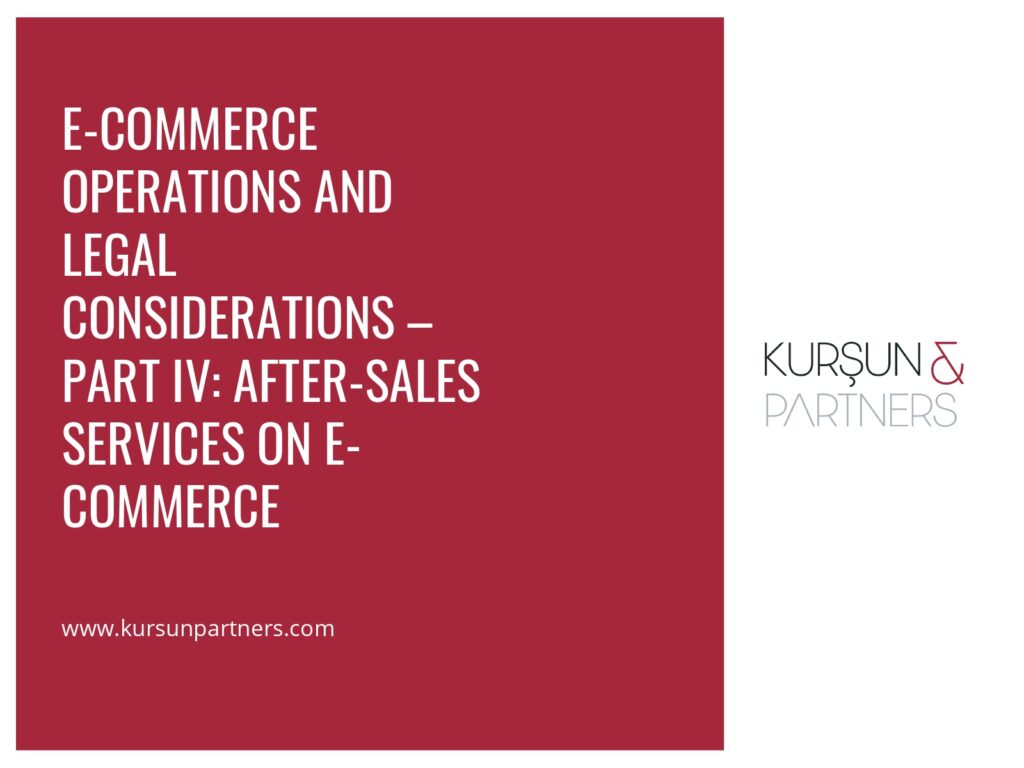Under the Law on Consumer Protection, manufacturers or importers are obligated to provide after-sales maintenance and repair services for the goods they produce or import, within the designated lifespan set by the Ministry of Trade. While the responsibility to offer after-sales services is primarily placed on manufacturers and importers, it should be noted that certain e-commerce sellers, who portray themselves as manufacturers by placing their own logos or brands on products, also assume the same responsibilities and obligations as manufacturers. This means that they are expected to fulfill the obligations assigned to manufacturers in terms of after-sales services and support.

Furthermore, the attached appendix also outlines the specific regions and the required number of authorized service stations to provide after-sales services throughout the designated lifespan of each product. For instance, let’s consider a company involved in the manufacturing and e-commerce of waffle makers. They are obliged to offer after-sales assistance for a duration of 7 (seven) years starting from the date of sale. Additionally, they have the responsibility of establishing a total of 30 (thirty) authorized service stations across 7 (seven) regions, ensuring a minimum of 3 (three) stations in each geographical area of Turkey. This comprehensive network guarantees that customers can conveniently access the necessary after-sales support and maintenance services for their waffle makers within their respective regions.
This obligation can be fulfilled by the company through the establishment of its own service stations, or by entering into agreements with existing service stations, provided that they are responsible for delivering the required services. This flexibility allows companies to meet the after-sales service requirements either through their own dedicated stations or by collaborating with established service stations, ensuring that customers have access to the necessary support and maintenance services for their products.
The Service Competency Certificate (Approved by the Ministry and Turkish Standards Institution)
It is mandatory for the manufacturer or importer to obtain the Ministry-approved Service Competency Certificate for the established authorized service stations. To obtain this approved document, it is necessary to first obtain the Service Competency Certificate prepared by the Turkish Standards Institution (“TSE”).
The TSE has certain requirements for issuing this certificate. For instance, the service stations must have a technical service department, comply with occupational health and safety regulations by providing designated areas such as desks, dressing rooms, and toilets, and obtain reports on grounding, electrical safety, and device calibration. The TSE certificate needs to be renewed annually, while the service competency certificate must be renewed every two years.
By fulfilling these requirements and obtaining the necessary certifications, e-commerce companies and their authorized service stations demonstrate their compliance with industry standards and regulations. This ensures that customers receive reliable and professional after-sales services, enhancing trust and satisfaction in the e-commerce sector.
After obtaining the aforementioned documents, companies responsible for providing after-sales services are required to register their authorized service stations and submit the necessary documents to the Service Information System of the Ministry of Trade. This registration process ensures transparency and accountability in the provision of after-sales services.
By registering their authorized service stations in the system, companies demonstrate their commitment to fulfilling their obligations and providing reliable support to customers. The Service Information System serves as a centralized platform where customers can access information about authorized service stations, their locations, contact details, and the services they offer.
E-commerce companies face the most complex operational process in fulfilling their after-sales service obligations. This department, which directly contributes to customer satisfaction, requires significant workforce and capital investment. However, it is important to note that this obligation applies exclusively to manufacturers (including those who outsource production to third parties and present themselves as manufacturers) and importers.
